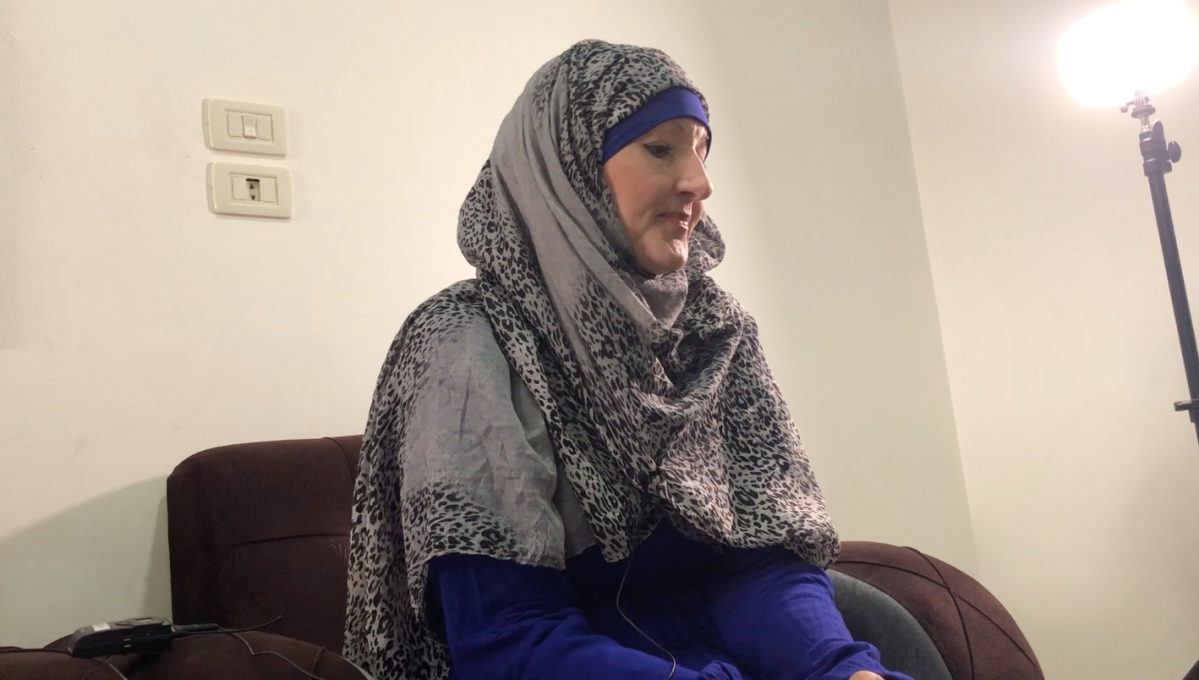The federal government has quietly adopted a policy that all but closes the door to repatriating Canadians from detention facilities in Syria for captured ISIS members and their families.

The secretive policy document on the detainees obtained by Global News said the government had no obligation to repatriate them and would only assist them under limited circumstances.
Those include if a Canadian child was left unaccompanied because of the parents’ death, or if a detainee’s “situation had changed significantly” since the policy was adopted last year.
While the policy acknowledged the “unique context” in Syria could prompt Ottawa to help the detainees, it said that would amount to “extraordinary assistance” and would only occur if a list of criteria were met.
Under the policy, which became effective in January 2021, only one of the more than a dozen Canadian detainees has met the bar for possible repatriation, a B.C. woman who married an ISIS fighter.
But the policy emphasizes national security concerns over repatriation, noting that one of the terrorist threats facing Canada was posed by Canadian Extremist Travellers (CETs) who have gone abroad to take part in terrorism.
“In general, due to the training and operational experience they may have acquired while abroad and the unique conflict environments to which they have been exposed in different regions, CETs could pose a serious threat to national security and public safety if they were to return to Canada,” it said.
“The government of Canada has no positive obligation under domestic or international law to provide consular assistance, including repatriation,” nor can it “secure an individual’s release from prison.”
The policy framework has never been publicly disclosed but was recently filed in a Federal Court case against the government brought by 11 families of detainees currently held in Syria.
Lawrence Greenspon, the Ottawa lawyer representing the families, said the existence of the policy was unknown until it arose in the case last November, and he only received a copy in January 2022.
He said the only Canadian detainee who qualifies under the new policy rules is Kimberly Polman, a middle-aged B.C. woman who left Canada in 2015 and was detained in Syria in 2019.
She is eligible because of her deteriorating health. Last week, United Nations experts said in a statement Polman was not receiving treatment for life-threatening health problems.

Get breaking National news
They include hepatitis, kidney inflammation, PTSD and “extremely serious mental health issues,” according to the Feb. 10 statement, which called her an “extremely ill Canadian national.”

Dozens of Canadian extremists travelled to Syria during the conflict and joined ISIS. While most were killed, a handful were captured by the U.S.-backed Syrian Democratic Forces.
Three Canadian men are imprisoned, while about 10 women and their children have been held at camps for ISIS families since the terrorist group lost the last of its territory in Syria in 2019.
Also held is a British man, Jack Letts, who holds Canadian citizenship through his family, which is trying to bring him to Canada after Britain revoked his United Kingdom citizenship.
Faced with questions over whether to bring them back to Canada, the government has maintained it was unable to send staff to assist them because Syria was too dangerous.
To date, an orphan has been returned to Canada as well as a girl and her mother, who was arrested upon arrival on a terrorism peace bond. In addition, the FBI took Mohammed Khalifa to the U.S.
A former Toronto IT worker, Khalifa has since pleaded guilty to terrorism, admitting he executed prisoners on video while he worked for the ISIS propaganda wing. He is scheduled to be sentenced in April.
The rest of the Canadians remain at a network of prisons and camps controlled by Kurdish fighters in northeast Syria, and there is little public support for repatriating them.
Meanwhile, the RCMP has struggled to gather the evidence to charge them should they return.
Following a recent ISIS attack on one of the main prisons holding captured fighters, Kurdish authorities have repeated their plea for countries to take back their nationals.
“For over three years, the Kurdish-led authorities in northeast Syria have been pleading with Canada to take responsibility for its nationals and repatriate them,” Human Rights Watch’s Canadian director Farida Deif said last week.
“But this government continues to drag its feet, doing little to nothing to bring an end to the Canadians’ misery.”
The seven-page policy framework adopted by Canada said the government would not put Canadian officials in harm’s way, and detainees would not be brought back without weighing the public safety and national security implications, “both in transit and upon return to Canada.”
An assessment by the RCMP and Canadian Security Intelligence Service would have to look at the “individual’s involvement in, or association with terrorist activity, and whether the risk of their return to Canada can be sufficiently mitigated in transit and upon arrival,” it said.

As part of the policy, the government also said it would have to be convinced its actions were making things worse for the detainees of their children.
“These individuals could be at risk of torture and other forms of mistreatment and could face the death penalty in neighbouring countries due to their alleged link to terrorist entities,” it said.
“Outside of the custody of local authorities, these individuals could also face vigilante-like violence from local populations in north-eastern Syria and Iraq who suffered atrocities at the hands of the Islamic State.”
The policy was developed without the knowledge or input of any of the key organizations involved in the detainees, notably Amnesty International, Human Rights Watch ad the International Civil Liberties Monitoring Group, according to a court affidavit by national security law expert Leah West.
Stewart.Bell@globalnews.ca








Comments
Want to discuss? Please read our Commenting Policy first.